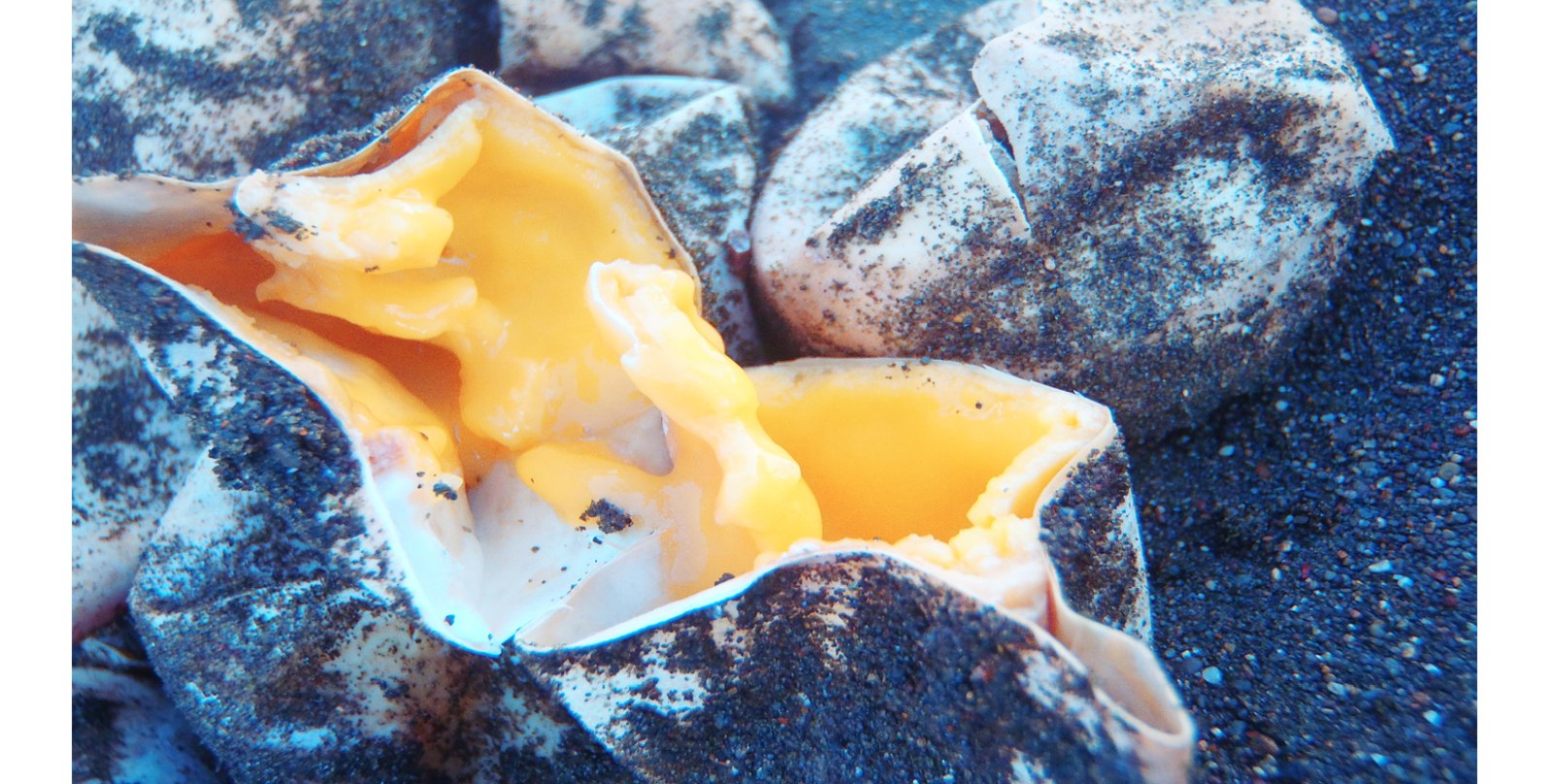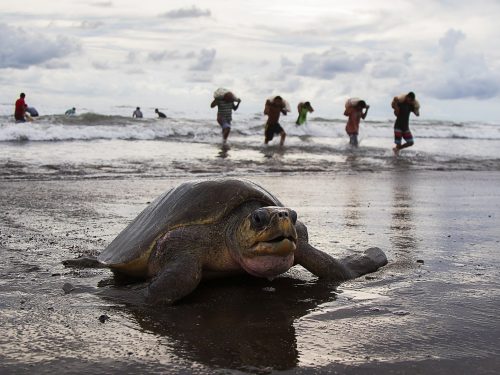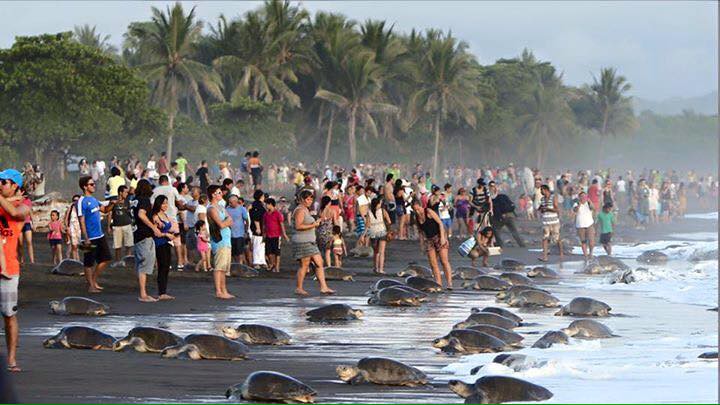
Olive Ridley sea turtle eggs are lucrative and generate employment. The only entity that is authorized to earn money by selling the eggs is the Development Association of Ostional (ADIO – Asociación de Desarrollo Integral de Ostional), though there is no lack of people who want to “make a fortune” through the activity.
According to Carlos Hernandez, the biologist in charge of the Ministry of Environment and Energy (MINAE- Ministerio de Ambiente y Energía) office in Ostional, the illegal sale of eggs is a phenomenon that requires constant attention. “There are some people who try to sell [them] illegally; generally they are people from areas nearby Ostional, but we are constantly vigilant. When we confirm that someone [selling eggs] doesn’t meet the requirements, we immediately alert the corresponding authorities,” said Hernandez.
Some 260 people in Ostional, the majority of whom are members of the association, work to collect, pack and sell the eggs, as well as maintaining security, cleaning the beach and caring for young turtles, among other activities. From May to September the greatest number of arribadas (moments when huge numbers of turtles arrive at once) bring turtles to the beach to lay their eggs.
They all belong to ADIO, which is authorized by the Costa Rican Institute of Fishing and Aquaculture (INCOPESCA – Instituto Costarricense de Pesca y Acuicultura), the Tempisque Conservation Area (ACT – Área de Conservación Tempisque) and MINAE.
According to Pablo Baltodano, a park guard for MINAE in Ostional, the arrival of a large group of turtles can produce some 3,000 bags containing 200 eggs each, for a total of 600,000 eggs.
Recognizing Illegal Egg Sales
According to Hernandez, the association has the right to take advantage of the eggs, though there are some rules. They have to submit an arrival declaration before the turtles come to shore and harvest the eggs during the first three days, as it is prohibited to do so afterwards.
Yamileth Baltodano, who works in MINAE’s Ostional office, explained that, “The greatest number of turtles arrive in the first days. The egg harvesting should be as quick as possible since the heat causes the eggs to stabilize so the baby turtles begin to form. A harvested egg can stay fresh for 15 to 20 days.”
In addition, egg sales should be documented and authorized by INCOPESCA. Those selling eggs should have their accreditation and identification with the association’s logo. Bags of eggs should also have the logo of their respective packer. Each bag has 200 eggs that are re-packed into bags with 10 or 12.
A bag with 200 eggs costs 11,000 colones ($22), an average of 55 colones per egg, though that price is only for intermediaries. The price for consumers varies.
Rodrigo Mora, an ADIO representative, said that the association could receive between ₡150 and ₡180 million ($300,000-360,000) per year if they were able to take advantage of all the legally-harvestable eggs.
According to Baltodano, egg traffickers can face a variety of penalties. “It depends on the court.The first time [that they are caught without a permit], it is handled through a conciliatory settlement in which a fine is assessed for environmental damage and the criminal does community service. For repeat offenders, a settlement is impossible and they are given a sentence, which is a minimum of one year,” said Baltodano.







Comments